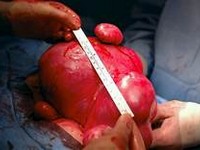
HALITOSIS
FOODS THAT HARM
FOODS THAT HEAL
WHO’S AFFECTED
But when it happens regularly, you might have a chronic underlying problem
Halitosis has many causes, including poor dental hygiene, gum disease, denture problems, dry mouth, or an infection of some kind
Treatment starts with attending carefully to brushing and flossing your teeth regularly, or making sure dentures are cleaned properly
If odor still persists, a trip to the dentist for evaluation is in order, and if you get an all-clear on your oral health, visit your physician to rule out other problems, which could include sinusitis, diabetes, strep throat, chronic bronchitis, or other diseases
QUICK TIP:
Nutrition Connection
Your breath is what you eatFor either occasional halitosis or chronic bad breath, here are a few guidelines:
Drink plenty of water
Quaffing a big glass of water after every meal will help flush out the bits of food that stench-producing bacteria thrive on
Water also helps you produce saliva, which helps the mouth cleanse itself
Chew sugar-free gum
Chewing gum sweetened with xylitol—a natural, low-calorie sugar—helps cleanse breath because xylitol curbs the growth of bacteria in the mouth
The gum itself helps loosen trapped food particles and increases saliva production
For best results, chew for at least five minutes after every meal
Reach for raw veggies
Those rich in vitamin C, such as broccoli and red bell pepper, are particularly good fighters of bad breath, because they create an unfriendly environment for bacteria
What’s more, eating raw, crunchy vegetables helps remove food particles stuck between teeth
Beyond the Diet
Some lifestyle choices affects your breathHere’s what you should do to freshen up: Enforce a tobacco taboo
A mouth that smells like an ashtray is yet another reason to stop smoking
Launder those dentures
Improperly cleaned dentures house smelly bacteria, fungi and food particles, which cause bad breath
Brush your tongue
When you brush your teeth, pass your soft toothbrush over your tongue a few times to dislodge bacteria
Some people use tongue scraper tools, but there’s little evidence that they’re any more effective than simple brushing
Importance of well balance diet




